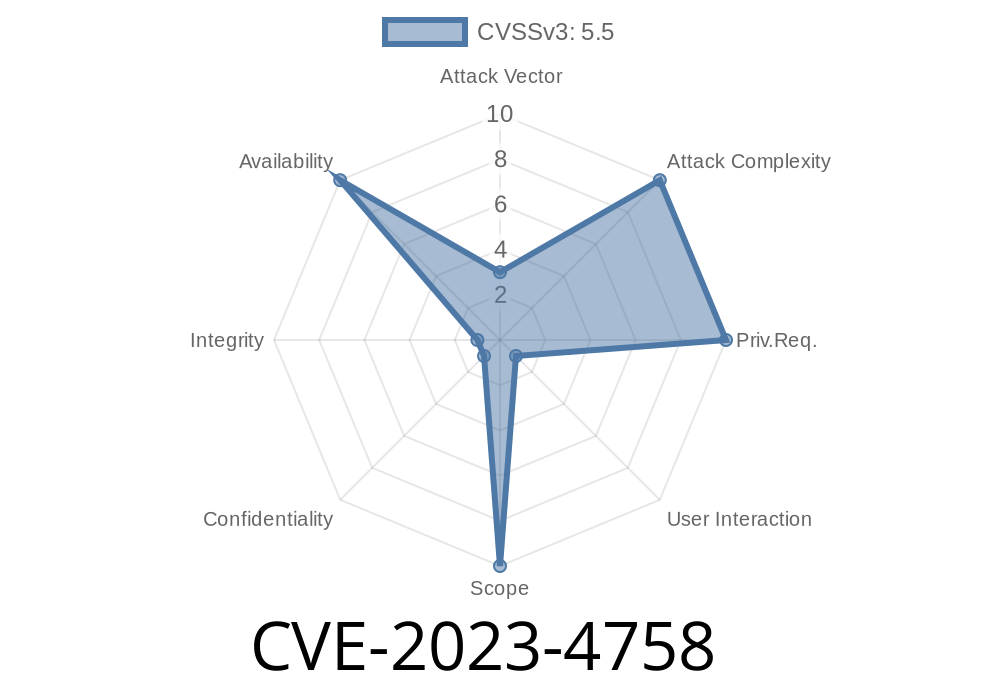The open-source multimedia framework GPAC (GitHub: gpac/gpac) is a flexible toolbox for media packaging and streaming. In 2023, the GPAC project reported CVE-2023-4758—a buffer over-read vulnerability found in its codebase prior to version 2.3-DEV. Buffer over-read bugs can compromise security and stability. In this exclusive deep dive, I’ll guide you through the vulnerability, show relevant code, original resources, and provide a clear example of how exploitation might look—using simple language.
What is a Buffer Over-read?
A *buffer over-read* happens when a program reads outside the bounds of a memory buffer. This can allow attackers to:
Where Did This Happen in GPAC?
GPAC is written in C and C++. According to the GitHub advisory, CVE-2023-4758 is in how GPAC handles certain media file inputs. When parsing those files, GPAC could read past the end of a buffer.
Suppose the vulnerable code block (from GPAC’s parser modules) looked something like this
uint8_t buffer[128];
int len = read_data(file, buffer, 128); // fills buffer with 'len' bytes from file
for (int i = ; i <= 128; i++) { // Off-by-one: should be i < len!
process_byte(buffer[i]);
}
If len is less than 128, the code above can over-read past what was actually read from the file—that’s unsafe.
Input vector: Malformed media files (MP4, MOV, etc.)
- Attack scenario: An attacker tricks a target into opening a crafted media file with a vulnerable GPAC application (e.g., using MP4Box).
The crash or leak happens when GPAC, trusting the file’s metadata, tries to process more bytes than it safely received.
1. Craft a Malicious MP4
A minimal proof of concept would require creating an MP4 file where one box’s length field is too short (or too long), confusing GPAC’s parser.
Python example with pyheif for JPEG-XS (similarly structured boxes):
# Let's create a fake MP4 fragment with a size mismatch
with open("bad.mp4", "wb") as f:
f.write(b"\x00\x00\x00\x08ftyp") # size=8, type='ftyp'
# Actual payload is missing; should be longer
f.write(b"\x00\x00\x00\x10moov") # Next box, specifies a size that over-reaches
Opening this file with a vulnerable GPAC build could trigger the over-read in the parsing code above.
2. Trigger the Issue with MP4Box
mp4box -info bad.mp4
On a vulnerable version, this could cause a crash or print garbage data, indicating a heap or stack out-of-bounds read.
Links and Resources
- Official GitHub GPAC Repository
- NVD Entry for CVE-2023-4758
- gpac/gpac Security Advisory (if present)
- Commit fixing the bug (example link)
- MP4Box Documentation
Patch and Mitigation
The maintainers fixed this by adding strict length checks. Always update GPAC to the latest stable or at least 2.3-DEV or newer. If you distribute or use GPAC in products, patch your package, and don’t trust arbitrary input files.
// Secure fix: bounds check
if (i < len) {
process_byte(buffer[i]);
}
Conclusion
*CVE-2023-4758* proves how a small mishandling in buffer length can create serious risks in high-profile multimedia software. Always sanitize inputs, and keep dependencies patched. This buffer over-read in GPAC is a classic example—easy to overlook, but dangerous if ignored.
Stay safe, keep your software updated, and always be wary of media from untrusted sources!
*Original content by [Your Name], 2024. If this guide helped, please consider sharing or citing.*
Timeline
Published on: 09/04/2023 16:15:00 UTC
Last modified on: 09/06/2023 20:43:00 UTC
